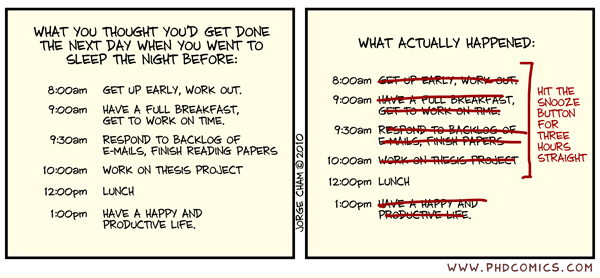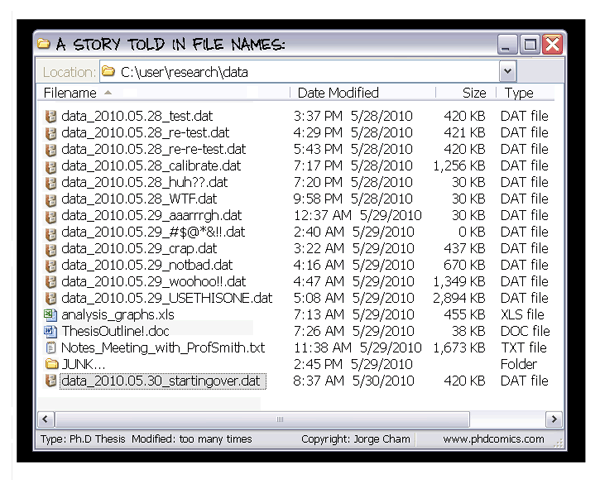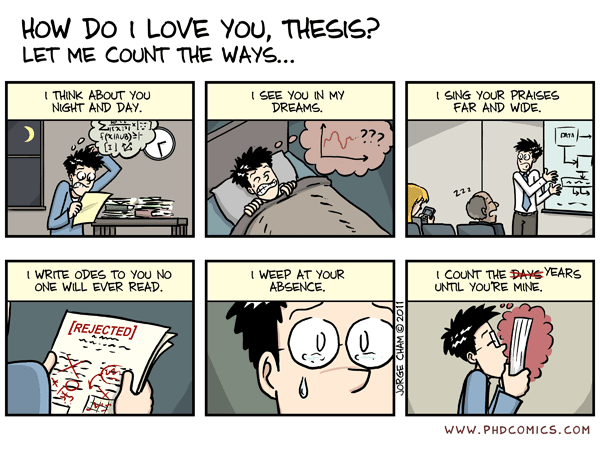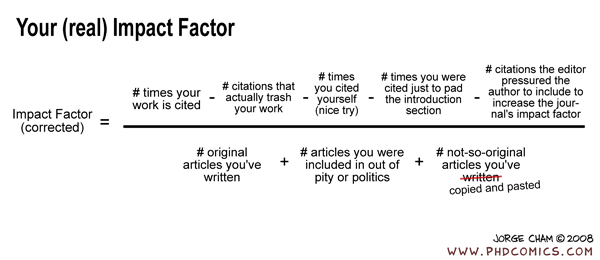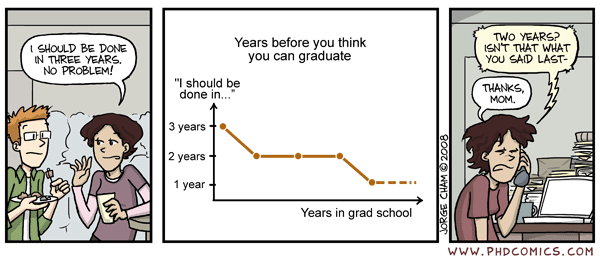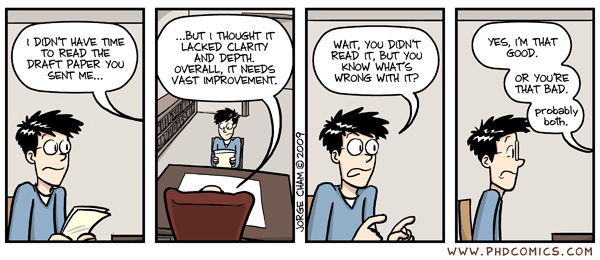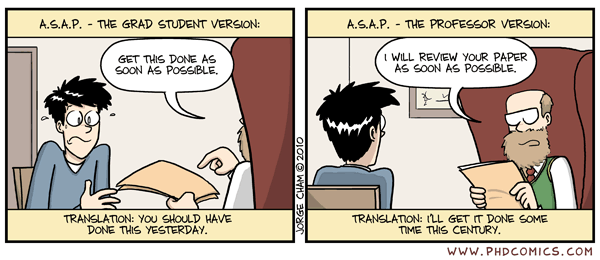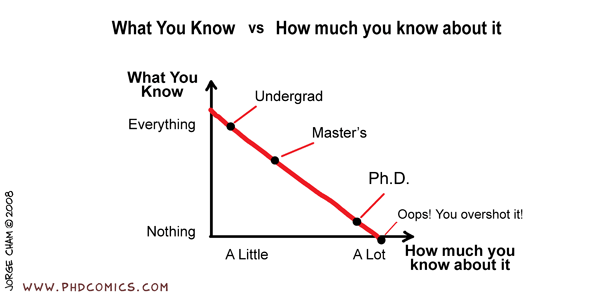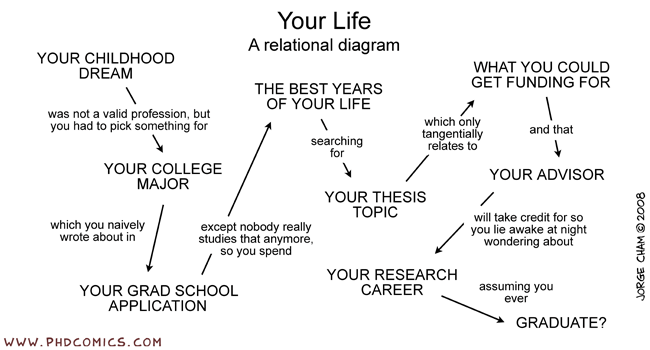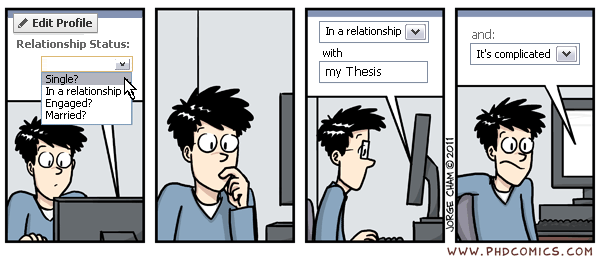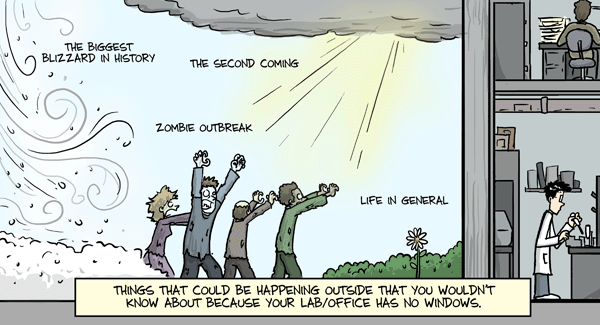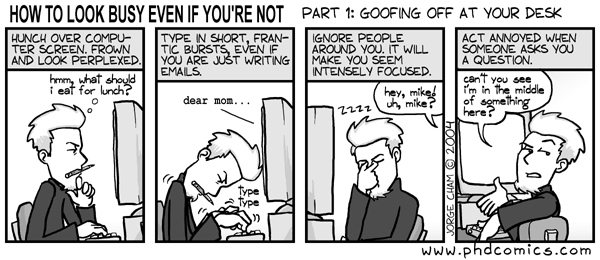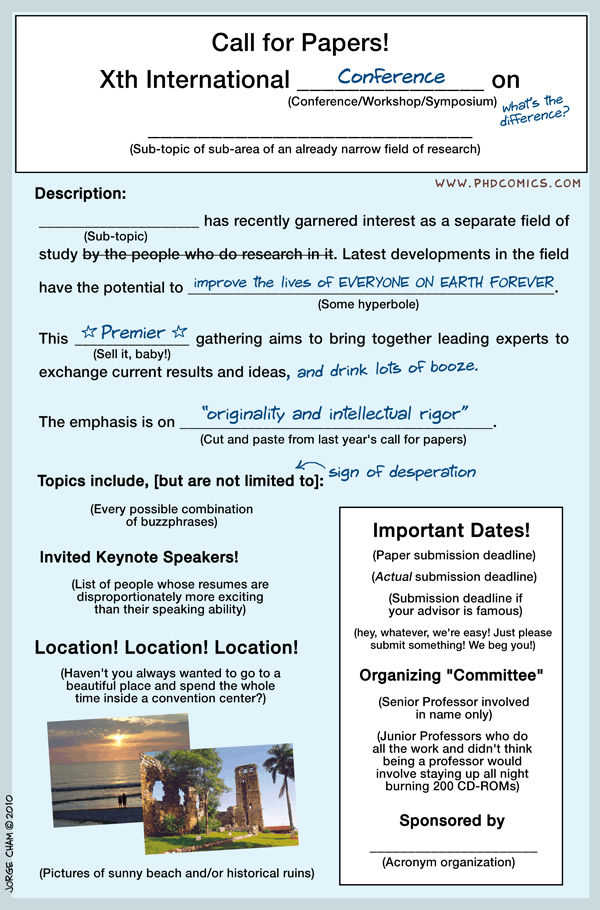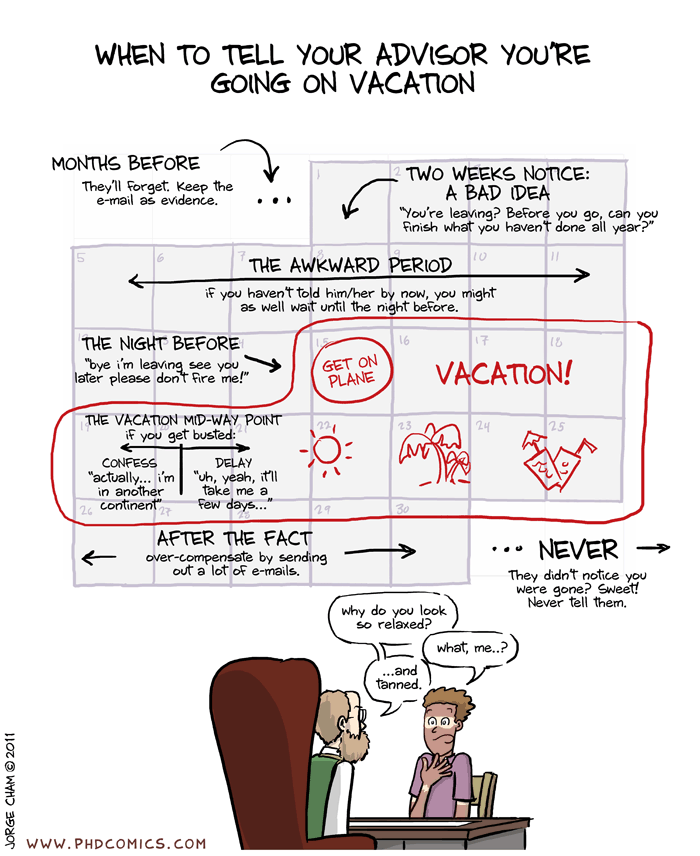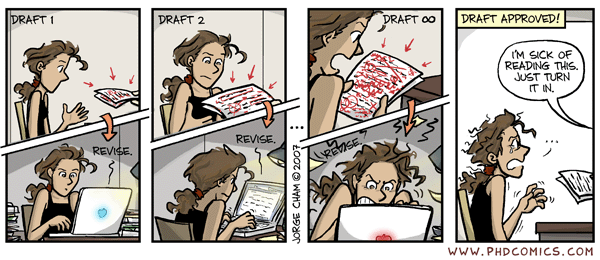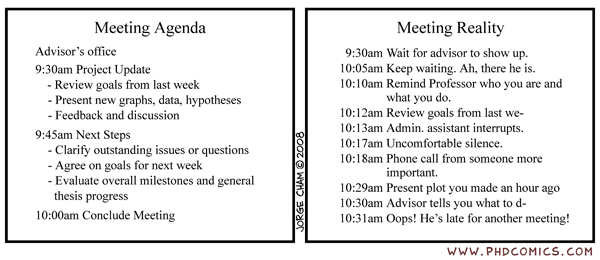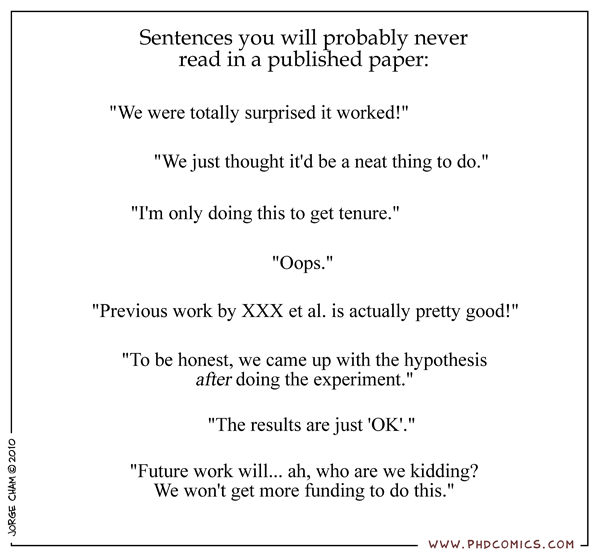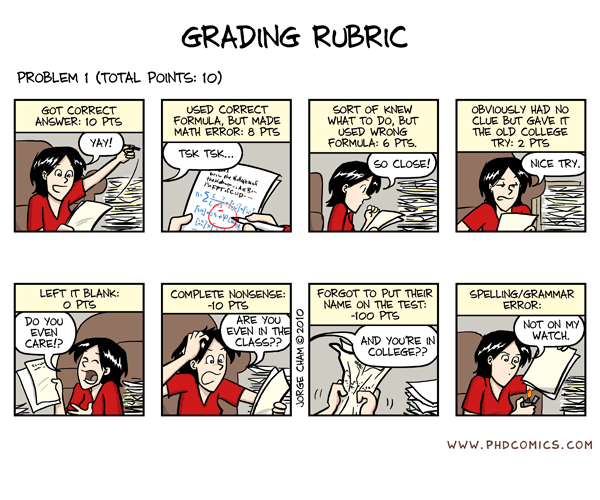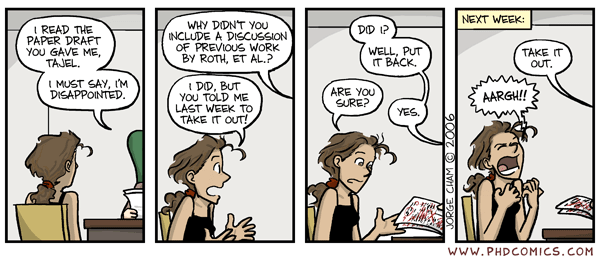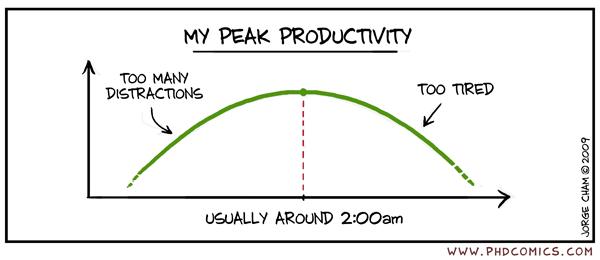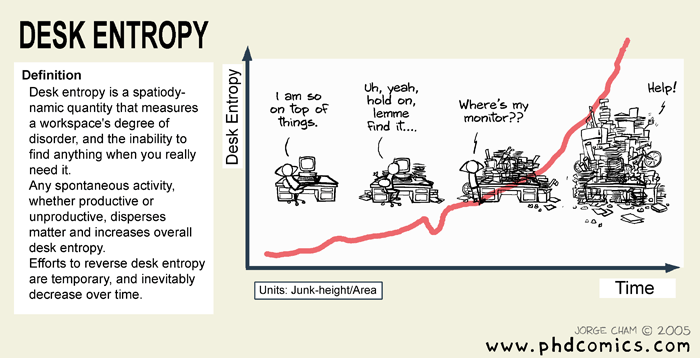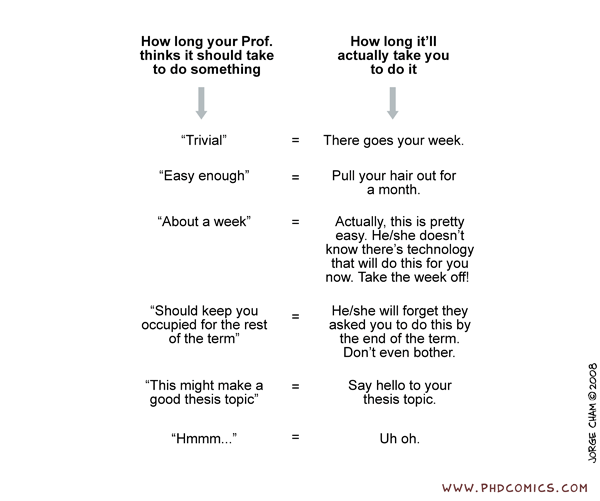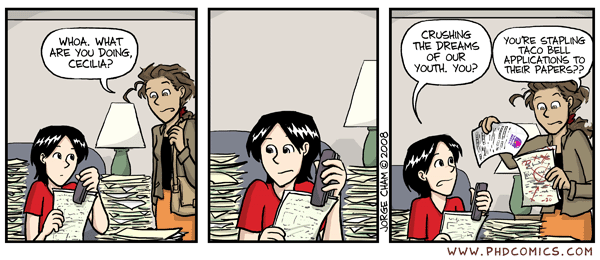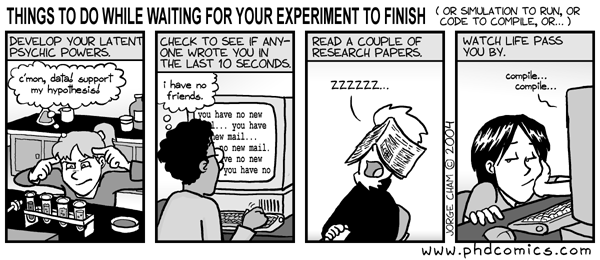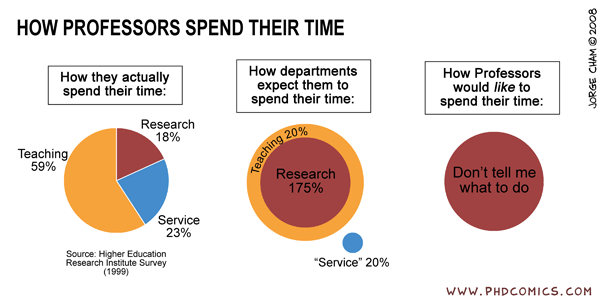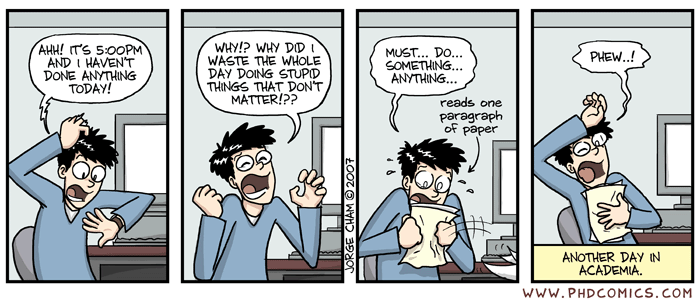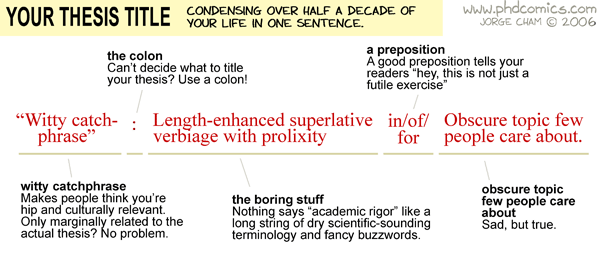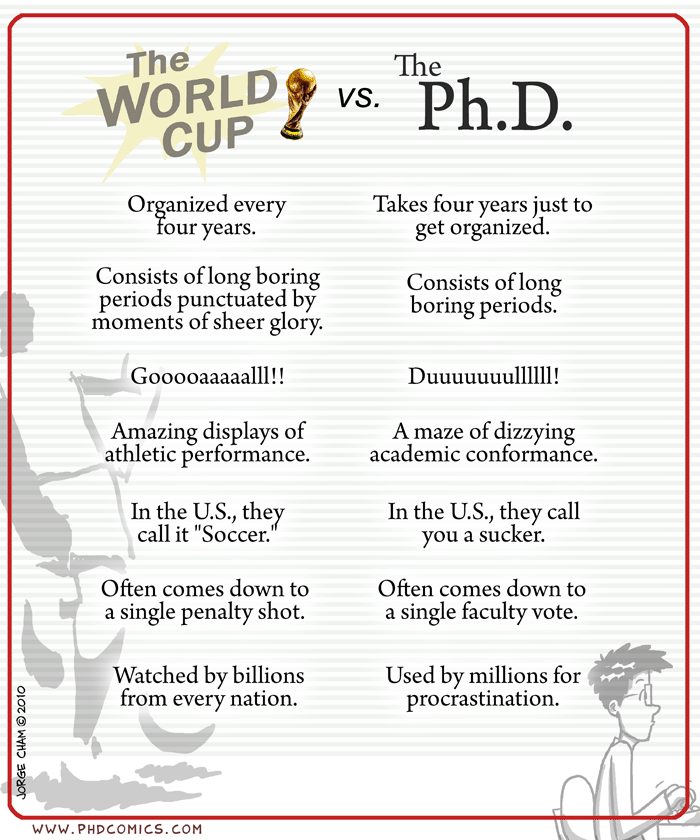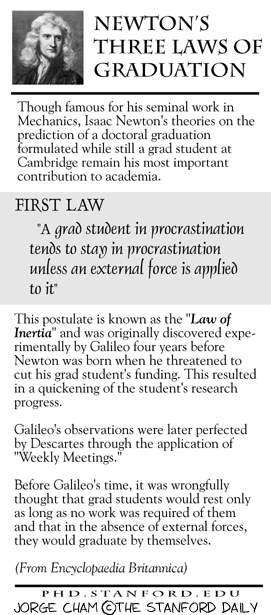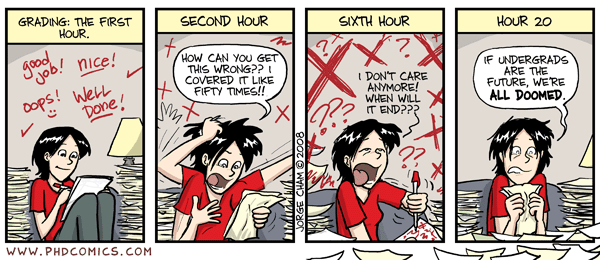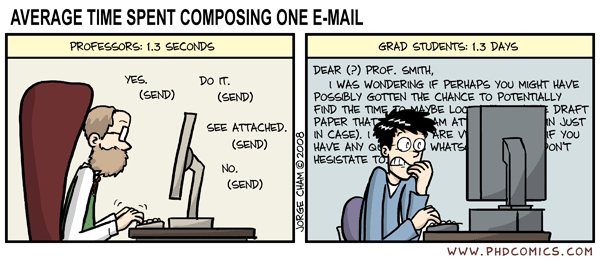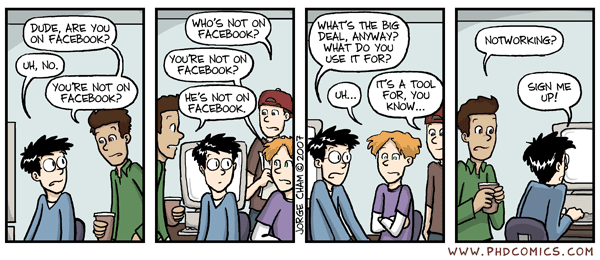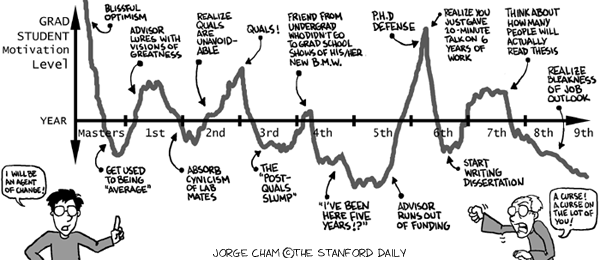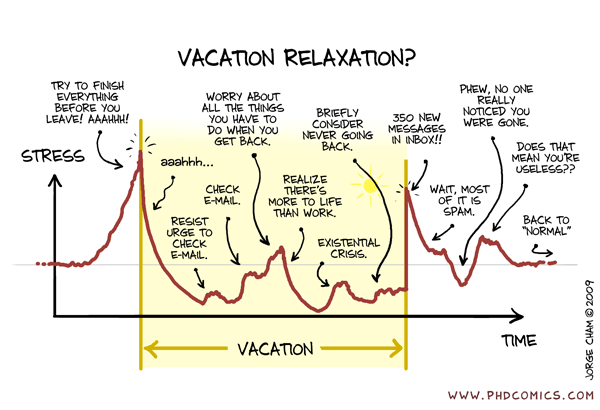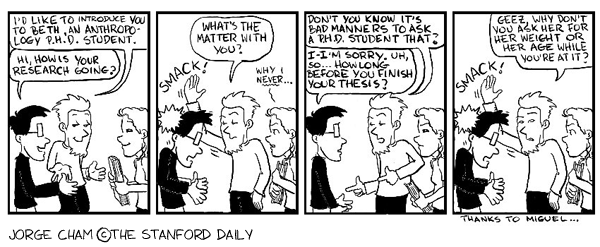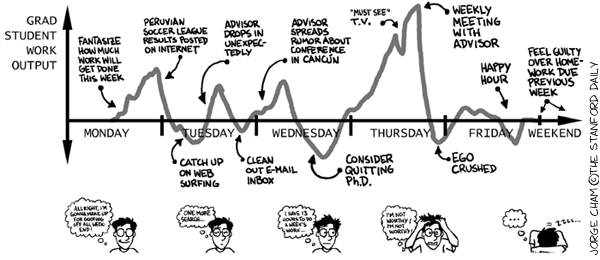Search This Blog
Sunday, 28 August 2011
WASILAH KASIH
Tidak ku cintamu kekasih
Kerana balasan yang engkau janjikan dulu
Untuk ku sebuah taman
Yang mengalir sungai kebahagiaan
Sungguh tidak kesampaian
Cintaku padamu
Seandai terikat dan bersyarat
Pada hukuman cinta kita
Serasa pula adanya
Tawar menawar penuh tanda tanya
Hanya satu pengucapanmu
Yang ku pegang kini menjadi nadi
Hiduplah aku kerananya
Bersama janjimu restu penuh pasti
Berpisah kita kekasih
Zahir kau yang hilang
Ku cari pada gambaran nyata
Tidak ku temu kau kekasih
Bayangmu oh dimana
Hinggakan aku kehilangan punca
Lalu aku kembali
Ke alam abadi
Bersama amanat janji
Ku lihat engkau disana
Setia menanti
Kekasih ku serahkan
Cinta satu kita
Lebih bermakna
Dari balasan kau janjikan
Walau kau duga
Bintang kejora
Menjadi intan tak ku hirau
Dalam sedar aku kembali
Didalam lena ku kita seabadi
Siang malam hanyalah mimpi
Demi engkau kasih tidak ku peduli
Nasty PhD ViVa Question
(source: a friend of mine)
While browsing my old emails, found this interesting 'well-kept' (save tapi x baca email :p). Guess this is amat2 crucial to all my rakan seperjuangan, i dedicate this note to us. selamat membaca n happy reflecting :)
copyright issue - chewah! sejak jadi stud phd ni, dah pandai sikit psl copyright ni hehehe. the note on nasty phd viva questions indeed is not mine, i merely pin and this note with others who pursuing phd :) and i dunno the actual author... let's call the author anonymous if u're to cite it elsewhere
Nasty PhD Viva Questions
A PhD candidate needs to anticipate the questions that are likely to be asked in the viva - the "horrible ordeal where you have to defend your thesis in person before they rip you to shreds." Actually, it's not nearly as bad as it sounds, provided that you enter it having prepared to your utmost.
There are three reasons why PhD candidates have to have a viva: it is so the examiners can see:
* whether it is your own work;
* whether you understand what you did;
* whether it is worth a PhD (i.e. is a contribution to knowledge).
These are the points being examined (according to Alex Gray from the University of Cardiff):
* Understanding: that you're ready to become an independent researcher.
* Relationship to other work: that you have a command of your subject-area. Similarity to the work of others doesn't detract from novelty!
* Novelty - is your work publishable? If you have already published a couple of papers, that should be proof of sufficient originality. Don't panic about recent publications that are very similar to your work - the important thing is to be aware of them, and to know the differences between your work and theirs.
* What you have achieved, and that you are aware of its implications. What will it make a difference to?
* Demonstration of hypothesis (what you set out to achieve). How have you evaluated/tested your hypothesis? Always be prepared to reconsider your hypothesis if you end up demonstrating something else - it's vitally important that your results match your hypothesis, and that you have a convincing argument for this.
* Why did you do it the way you did? Not just your practical work, but everything. For example, your literature review should be focused towards your hypothesis.
Preparing for the Viva: Before you submit
It's crucial to get the philosophy of your thesis (as set out in your Chapter 1) absolutely correct, and clear in your mind by the time of the viva, because if the examiners find holes, they'll run rings round you.
They could ask you to explain/justify any statement in the thesis, so beware of baring nasty branches for clarification at the viva! Identify the contentious statements in the thesis, which you anticipate having to defend in the viva. A good supervisor will point out the contentious statements and grill you over them. Start a file of anticipated viva questions.
The conclusion chapter is a major one to focus on in anticipating viva questions - especially where you criticise your work!
Obviously, it's essential to know your own thesis thoroughly. I think it's a great idea to compile a brief summary of each section before you submit - enough to remind you of what's in each section, paragraph by paragraph or similar (my thesis summary is very different to, and shorter than, my thesis plan, where I basically wrote down all the points I could think of, then when I wrote it up, I added and deleted points, and changed the structure). Compiling a thesis summary before you submit has the advantages that you may spot strategic-level flaws in time to fix them, and will enable you to revise for the viva from the thesis summary rather than from the thesis itself.
Don't try to get the thesis perfect and free of minor corrections at the expense of delaying submission. It's almost certain that the examiners will find something to correct, anyway.
Preparing for the Viva: After you submit
The most important goal in preparing for the viva is to keep the subject alive in your head.
Try to anticipate the questions you'll be asked in your viva and keep working on a file of anticipated questions (both the generic questions listed on this web-page, and questions specific to particular sections of your thesis) and your answers. If you said anything without understanding it 100%, or anything you have doubts about having justified properly, add it to your viva file.
You can go into university after you've submitted your thesis and your registration has expired - doing some more practical work may (or may not) help to keep the subject alive in your head (you could do experiments and take printouts of the results to the viva).
However, the main preparation for the viva is reading. These are the things to prioritise:
1. Know your thesis inside-out. Compile a thesis summary (see above) if you didn't do so before you submitted - revising from that rather than from the thesis itself will help you focus on the strategic level (a half-line summary of each paragraph in the thesis should suffice to remind you of every important point in the thesis). You should read your thesis summary in a continuous cycle while you're waiting for the viva, and you should read the thesis itself at least once after you submit it and before the viva. Try to read it from the perspective of the examiners.
* If your thesis contains mathematical formulae, check them carefully so that you're confident, by the time of the viva, that they're correct. If they're not correct, work it out in advance so that you're not flustered by mathematical mistakes at the viva.
2. Be familiar with the references cited in your thesis, because that's the literature your examiners are most likely to ask you about. Read anything you have cited without reading (not that you should cite things without reading in the first place!).
3. The examiners could also ask you about literature not in the thesis, to test whether you are widely-read in your area.
* So make sure you're familiar with the literature - not everything you've read in the last three years, but the more important stuff.
* Look for recent review/survey papers of related areas. You need to be able to discuss the state of the art in any area related to your thesis.
* Recent publications tend to be particularly important (what are the recent developments in your field?), although they can't ask you about anything published after you submitted your thesis.
* Read the examiners' publications to get a feel for where they're coming from, what things they consider important, and which topics they consider relevant.
* Don't stop reading until after the viva.
It might be an idea to publish a paper or two between submitting your thesis and the viva - I wish I had done so. Try to write papers from different perspectives.
The time between submitting the thesis and the viva varies greatly. I submitted my thesis on 28th September 2001, and had my viva on 18th September 2002! My thesis was very long (390 pages including appendices), and there was a delay in finding a suitable external examiner, but above all you have to remember that your examiners will be busy with other things too!
The shortest time I've heard of between submission and viva is three weeks (different subject, different university).
They have to give you at least two weeks' notice before the viva. I got five weeks' notice. My internal examiner suggested a couple of dates, I chose 18th September and asked for 14:00 in IT406, and this was officially confirmed a few days later.
The Viva itself
The PhD viva is an open-book exam: you can bring any materials you want. Here is what I think one should bring to the viva:
* a copy of your thesis, obviously - you can stick yellow `post-it' notes on it (e.g. anticipated questions and answers), although I personally abhorred the idea of preparing from my thesis itself;
* your list of anticipated viva questions and your answers;
* printouts of the results of any post-submission experiments;
* the chapter-summaries you made for revision;
* all the notebooks you should have been keeping since the start of your research (the notebooks need to be indexed so that you can look things up);
* any papers such that when you reviewed them in the thesis, you regurgitated something they said blindly without really understanding it (in my case, I identified two such papers, but I brought a dozen potentially contentious papers to the viva);
* printouts of any files or emails containing useful ideas which you haven't documented elsewhere;
* tissues, paracetemol, &c. in case of any unexpected bouts of sneezing, headaches, &c.
At my viva, I gave a presentation (using slides) about some experiments I did after I submitted my thesis. But it's unusual for the candidate to give a presentation, and your supervisor should advise you if it is appropriate to do this. If you do give a presentation, be prepared to be flexible - I was asked to speed up and just give the highlights.
It is not the norm, in this department (I do not speak for other departments/ universities) , to be expected to give a practical demonstration of your work at the viva, but you could always offer to do so if you think it will help your cause (unlikely).
Anyone can attend a PhD viva, but only the examiners and the candidate can participate. (This means it may be a good idea to attend someone else's viva before your own, though I've never had the balls to gate-crash a viva! :-o )
Your supervisor should definitely attend your viva, although (s)he is usually not allowed to participate unless invited to do so by the examiners. It might be an idea to keep an eye on the body-language of your supervisor to see if you're going wrong! ;-)
A viva typically lasts two hours (but as long as it takes - mine lasted 2h22m), and a common approach is for the examiners to go through the thesis sequentially, asking questions.
Just because they ask a lot of questions doesn't mean you're going to fail. They don't give away the result before or during the viva, but you may be asked to wait around for the result at the end (about half an hour), so that they can explain the result to you - particularly if you have to resubmit your thesis (failure without the option of resubmission is very rare, and is not going to happen if you submit anything resembling a sensible thesis).
Tips:
* Relax and enjoy it, if possible!
* Ideas should flow out from you without a lot of prompting.
* Listen carefully to the questions and take your time answering them.
* Answer your questions succinctly (a rough guideline is 2 to 3 minutes each - no 20-minute diatribes!). Avoid going off at a tangent.
* Try to make your answers initially inclusive (spot overlaps), analytical, and then if appropriate dismissive or point out the limitations - and the effects of these limits.
* Generic viva questions, such as the ones given in the section below, require imagination to answer well!
* Answers may utilise a wide variety of examples and domains. They are a test of your breadth of knowledge as well as depth of knowledge which is expected of a PhD student.
* Handling difficult questions:
* If you don't understand the question, ask for clarification. Paraphrase the question in your own words and say, "is this what you mean?" State your assumptions.
* Treat vague questions as invitations to tell the examiners that you know your area and how it fits into related areas. Try to link the question to the questions you have anticipated and their stock answers. After writing a thesis, you should have one big, connected network of discussion in your head, so you need to jump in at the appropriate place for a given question.
* If they have a misconception about your work, try to pin it down and explain it.
* If you think the question is irrelevant, explain why you think it is irrelevant (it may be that you need to be more broad-minded) .
* If you really can't answer a question:
* Be honest.
* If you have any idea at all, say it.
* Say, "I can't answer this on the spot, but I should be able to work it out in my own time."
* If it's about literature you haven't come across, thank the questionner and ask for a reference.
Typical Viva Questions
Here are some generic viva-questions - you should instantiate each question for your particular thesis, and have a framework for answering it worked out before the viva.
I have tried to cluster related questions together here - they are not necessarily in order of importance, nor in the order that they are likely to be asked at the viva.
General Questions
* What is the area in which you wish to be examined? (particularly difficult and important if your thesis fits into several areas, or has several aspects, or seems to fit into an area of its own as mine does).
* In one sentence, what is your thesis? (Resist the temptation to run from the room!)
* What have you done that merits a PhD?
* Summarise your key findings.
* What are you most proud of, and why? This may be asked (again) towards the end of the viva.
* What's original about your work? Where is the novelty? Don't leave it to the examiners to make up their own minds - they may get it wrong!
* What are the contributions (to knowledge) of your thesis?
* Which topics overlap with your area?
For topic X:
* How does your work relate to X?
* What do you know about the history of X?
* What is the current state of the art in X? (capabilities and limitations of existing systems)
What techniques are commonly used?
Where do current technologies fail such that you (could) make a contribution?
* How does/could your work enhance the state of the art in X?
* Who are the main `players' in X? (Hint: you should cluster together papers written by the same people)
Who are your closest competitors?
* What do you do better than them? What do you do worse?
* Which are the three most important papers in X?
* What are the recent major developments in X?
* How do you expect X to progress over the next five years? How long-term is your contribution, given the anticipated future developments in X?
* What did you do for your MPhil, and how does your PhD extend it? Did you make any changes to the system you implemented for your MPhil?
* What are the strongest/weakest parts of your work?
* Where did you go wrong?
* Why have you done it this way? You need to justify your approach - don't assume the examiners share your views.
* What are the alternatives to your approach?
What do you gain by your approach?
What would you gain by approach X?
* Why didn't you do it this way (the way everyone else does it)? This requires having done extensive reading. Be honest if you never thought of the alternative they're suggesting, or if you just didn't get around to it. If you try to bluff your way out, they'll trap you in your own words.
* Looking back, what might you have done differently? This requires a thoughtful answer, whilst defending what you did at the time.
* How do scientists/philosop hers carry out experiments?
* How have you evaluated your work?
* intrinsic evaluation: how have you demonstrated that it works, and how well it performs?
* extrinsic evaluation: how have you demonstrated its usefulness for a specific application context?
* What do your results mean?
* How would your system cope with bigger examples? Does it scale up? This is especially important if you have only run your system on `toy' examples, and they think it has `learned its test-data'.
* How do you know that your algorithm/rules are correct?
* How could you improve your work?
* What are the motivations for your research? Why is the problem you have tackled worth tackling?
* What is the relevance of your contributions?
* to other researchers?
* to industry?
* What is the implication of your work in your area? What does it change?
* How do/would you cope with known problems in your field? (e.g. combinatorial explosion)
* Have you solved the field's problem that you claim to have solved? For example, if something is too slow, and you can make it go faster - how much increase in speed is needed for the applications you claim to support?
* Is your field going in the right direction? For example, if everyone's been concentrating on speed, but the real issue is space (if the issue is time, you can just wait it out (unless it's combinatorially explosive), but if the issue is space, the system could fall over). This is kind of justifying why you have gone into the field you're working in.
* Who are your envisioned users? What use would your work be in situation X?
* How do your contributions generalise?
To what extent would they generalise to systems other than the one you've worked on?
Under what circumstances would your approach be useable? (Again, does it scale up?)
* Where will you publish your work? Think about which journals and conferences your research would best suit. Just as popular musicians promote their latest albums by releasing singles and going on tour, you should promote your thesis by publishing papers in journals and presenting them at conferences. This takes your work to a much wider audience; this is how academics establish themselves.
* Which aspects of your thesis could be published?
* What have you learned from the process of doing your PhD? Remember that the aim of the PhD process is to train you to be a fully professional researcher - passing your PhD means that you know the state of the art in your area and the directions in which it could be extended, and that you have proved you are capable of making such extensions.
* Where did your research-project come from? How did your research-questions emerge? You can't just say "my supervisor told me to do it" - if this is the case, you need to talk it over with your supervisor before the viva. Think out a succinct answer (2 to 5 minutes).
* Has your view of your research topic changed during the course of the research?
* You discuss future work in your conclusion chapter. How long would it take to implement X, and what are the likely problems you envisage? Do not underestimate the time and the difficulties - you might be talking about your own resubmission- order! ;-)
Particular Questions
Most of the viva will probably consist of questions about specific sections of your thesis, and the examiner should give a page-reference for each question. According to Alex Gray, these questions fall into six categories:
* Clarification. The examiners ask you to explain a particular statement in the thesis. In some cases, their lack of understanding may be due to a typo, e.g. "Why did you connect the client to the sewer?" Also, "not" is a small word which makes a big difference! ;-)
* Justification.
* Alternatives considered. Be honest if you didn't consider alternatives, otherwise you'll be digging a hole for yourself.
* Awareness of other work.
* Distinction from similar work. Especially recent publications where others are working in the same area - what are the similarities and differences between your work and theirs?
* Correction of errors (typos, technical errors, misleading statements, and so on).
Acknowledgements
Much of the material on this page comes from my supervisor Nick Filer , from CS700 /CS710 , from questions I've been asked at the end of various presentations I've given, and from my own viva (most of the questions there were thesis-specific) . I added questions from the external websites given at the end of this document. I also updated this document in the light of Alex Gray's keynote speech, "Surviving the PhD Viva: An External Examiners Perspective" at the 2002 Research Students' Symposium .
If you can think of any viva-style questions that are not covered by the above, please do not hesitate to tell me, and I will consider them for inclusion on this page.
Finally, I found my own viva much less stressful than I thought it was going to be. The examiners know that it's an ordeal for anybody, so they should go out of their way to put you at your ease and make you feel comfortable. I was amazed how calm I was, even when I went back to hear the result. If you're worried about getting an `impossible' resubmission- order, remember it's not the examiners' job to set insurmountable hurdles - they want you to pass as soon as possible.
While browsing my old emails, found this interesting 'well-kept' (save tapi x baca email :p). Guess this is amat2 crucial to all my rakan seperjuangan, i dedicate this note to us. selamat membaca n happy reflecting :)
copyright issue - chewah! sejak jadi stud phd ni, dah pandai sikit psl copyright ni hehehe. the note on nasty phd viva questions indeed is not mine, i merely pin and this note with others who pursuing phd :) and i dunno the actual author... let's call the author anonymous if u're to cite it elsewhere
Nasty PhD Viva Questions
A PhD candidate needs to anticipate the questions that are likely to be asked in the viva - the "horrible ordeal where you have to defend your thesis in person before they rip you to shreds." Actually, it's not nearly as bad as it sounds, provided that you enter it having prepared to your utmost.
There are three reasons why PhD candidates have to have a viva: it is so the examiners can see:
* whether it is your own work;
* whether you understand what you did;
* whether it is worth a PhD (i.e. is a contribution to knowledge).
These are the points being examined (according to Alex Gray from the University of Cardiff):
* Understanding: that you're ready to become an independent researcher.
* Relationship to other work: that you have a command of your subject-area. Similarity to the work of others doesn't detract from novelty!
* Novelty - is your work publishable? If you have already published a couple of papers, that should be proof of sufficient originality. Don't panic about recent publications that are very similar to your work - the important thing is to be aware of them, and to know the differences between your work and theirs.
* What you have achieved, and that you are aware of its implications. What will it make a difference to?
* Demonstration of hypothesis (what you set out to achieve). How have you evaluated/tested your hypothesis? Always be prepared to reconsider your hypothesis if you end up demonstrating something else - it's vitally important that your results match your hypothesis, and that you have a convincing argument for this.
* Why did you do it the way you did? Not just your practical work, but everything. For example, your literature review should be focused towards your hypothesis.
Preparing for the Viva: Before you submit
It's crucial to get the philosophy of your thesis (as set out in your Chapter 1) absolutely correct, and clear in your mind by the time of the viva, because if the examiners find holes, they'll run rings round you.
They could ask you to explain/justify any statement in the thesis, so beware of baring nasty branches for clarification at the viva! Identify the contentious statements in the thesis, which you anticipate having to defend in the viva. A good supervisor will point out the contentious statements and grill you over them. Start a file of anticipated viva questions.
The conclusion chapter is a major one to focus on in anticipating viva questions - especially where you criticise your work!
Obviously, it's essential to know your own thesis thoroughly. I think it's a great idea to compile a brief summary of each section before you submit - enough to remind you of what's in each section, paragraph by paragraph or similar (my thesis summary is very different to, and shorter than, my thesis plan, where I basically wrote down all the points I could think of, then when I wrote it up, I added and deleted points, and changed the structure). Compiling a thesis summary before you submit has the advantages that you may spot strategic-level flaws in time to fix them, and will enable you to revise for the viva from the thesis summary rather than from the thesis itself.
Don't try to get the thesis perfect and free of minor corrections at the expense of delaying submission. It's almost certain that the examiners will find something to correct, anyway.
Preparing for the Viva: After you submit
The most important goal in preparing for the viva is to keep the subject alive in your head.
Try to anticipate the questions you'll be asked in your viva and keep working on a file of anticipated questions (both the generic questions listed on this web-page, and questions specific to particular sections of your thesis) and your answers. If you said anything without understanding it 100%, or anything you have doubts about having justified properly, add it to your viva file.
You can go into university after you've submitted your thesis and your registration has expired - doing some more practical work may (or may not) help to keep the subject alive in your head (you could do experiments and take printouts of the results to the viva).
However, the main preparation for the viva is reading. These are the things to prioritise:
1. Know your thesis inside-out. Compile a thesis summary (see above) if you didn't do so before you submitted - revising from that rather than from the thesis itself will help you focus on the strategic level (a half-line summary of each paragraph in the thesis should suffice to remind you of every important point in the thesis). You should read your thesis summary in a continuous cycle while you're waiting for the viva, and you should read the thesis itself at least once after you submit it and before the viva. Try to read it from the perspective of the examiners.
* If your thesis contains mathematical formulae, check them carefully so that you're confident, by the time of the viva, that they're correct. If they're not correct, work it out in advance so that you're not flustered by mathematical mistakes at the viva.
2. Be familiar with the references cited in your thesis, because that's the literature your examiners are most likely to ask you about. Read anything you have cited without reading (not that you should cite things without reading in the first place!).
3. The examiners could also ask you about literature not in the thesis, to test whether you are widely-read in your area.
* So make sure you're familiar with the literature - not everything you've read in the last three years, but the more important stuff.
* Look for recent review/survey papers of related areas. You need to be able to discuss the state of the art in any area related to your thesis.
* Recent publications tend to be particularly important (what are the recent developments in your field?), although they can't ask you about anything published after you submitted your thesis.
* Read the examiners' publications to get a feel for where they're coming from, what things they consider important, and which topics they consider relevant.
* Don't stop reading until after the viva.
It might be an idea to publish a paper or two between submitting your thesis and the viva - I wish I had done so. Try to write papers from different perspectives.
The time between submitting the thesis and the viva varies greatly. I submitted my thesis on 28th September 2001, and had my viva on 18th September 2002! My thesis was very long (390 pages including appendices), and there was a delay in finding a suitable external examiner, but above all you have to remember that your examiners will be busy with other things too!
The shortest time I've heard of between submission and viva is three weeks (different subject, different university).
They have to give you at least two weeks' notice before the viva. I got five weeks' notice. My internal examiner suggested a couple of dates, I chose 18th September and asked for 14:00 in IT406, and this was officially confirmed a few days later.
The Viva itself
The PhD viva is an open-book exam: you can bring any materials you want. Here is what I think one should bring to the viva:
* a copy of your thesis, obviously - you can stick yellow `post-it' notes on it (e.g. anticipated questions and answers), although I personally abhorred the idea of preparing from my thesis itself;
* your list of anticipated viva questions and your answers;
* printouts of the results of any post-submission experiments;
* the chapter-summaries you made for revision;
* all the notebooks you should have been keeping since the start of your research (the notebooks need to be indexed so that you can look things up);
* any papers such that when you reviewed them in the thesis, you regurgitated something they said blindly without really understanding it (in my case, I identified two such papers, but I brought a dozen potentially contentious papers to the viva);
* printouts of any files or emails containing useful ideas which you haven't documented elsewhere;
* tissues, paracetemol, &c. in case of any unexpected bouts of sneezing, headaches, &c.
At my viva, I gave a presentation (using slides) about some experiments I did after I submitted my thesis. But it's unusual for the candidate to give a presentation, and your supervisor should advise you if it is appropriate to do this. If you do give a presentation, be prepared to be flexible - I was asked to speed up and just give the highlights.
It is not the norm, in this department (I do not speak for other departments/ universities) , to be expected to give a practical demonstration of your work at the viva, but you could always offer to do so if you think it will help your cause (unlikely).
Anyone can attend a PhD viva, but only the examiners and the candidate can participate. (This means it may be a good idea to attend someone else's viva before your own, though I've never had the balls to gate-crash a viva! :-o )
Your supervisor should definitely attend your viva, although (s)he is usually not allowed to participate unless invited to do so by the examiners. It might be an idea to keep an eye on the body-language of your supervisor to see if you're going wrong! ;-)
A viva typically lasts two hours (but as long as it takes - mine lasted 2h22m), and a common approach is for the examiners to go through the thesis sequentially, asking questions.
Just because they ask a lot of questions doesn't mean you're going to fail. They don't give away the result before or during the viva, but you may be asked to wait around for the result at the end (about half an hour), so that they can explain the result to you - particularly if you have to resubmit your thesis (failure without the option of resubmission is very rare, and is not going to happen if you submit anything resembling a sensible thesis).
Tips:
* Relax and enjoy it, if possible!
* Ideas should flow out from you without a lot of prompting.
* Listen carefully to the questions and take your time answering them.
* Answer your questions succinctly (a rough guideline is 2 to 3 minutes each - no 20-minute diatribes!). Avoid going off at a tangent.
* Try to make your answers initially inclusive (spot overlaps), analytical, and then if appropriate dismissive or point out the limitations - and the effects of these limits.
* Generic viva questions, such as the ones given in the section below, require imagination to answer well!
* Answers may utilise a wide variety of examples and domains. They are a test of your breadth of knowledge as well as depth of knowledge which is expected of a PhD student.
* Handling difficult questions:
* If you don't understand the question, ask for clarification. Paraphrase the question in your own words and say, "is this what you mean?" State your assumptions.
* Treat vague questions as invitations to tell the examiners that you know your area and how it fits into related areas. Try to link the question to the questions you have anticipated and their stock answers. After writing a thesis, you should have one big, connected network of discussion in your head, so you need to jump in at the appropriate place for a given question.
* If they have a misconception about your work, try to pin it down and explain it.
* If you think the question is irrelevant, explain why you think it is irrelevant (it may be that you need to be more broad-minded) .
* If you really can't answer a question:
* Be honest.
* If you have any idea at all, say it.
* Say, "I can't answer this on the spot, but I should be able to work it out in my own time."
* If it's about literature you haven't come across, thank the questionner and ask for a reference.
Typical Viva Questions
Here are some generic viva-questions - you should instantiate each question for your particular thesis, and have a framework for answering it worked out before the viva.
I have tried to cluster related questions together here - they are not necessarily in order of importance, nor in the order that they are likely to be asked at the viva.
General Questions
* What is the area in which you wish to be examined? (particularly difficult and important if your thesis fits into several areas, or has several aspects, or seems to fit into an area of its own as mine does).
* In one sentence, what is your thesis? (Resist the temptation to run from the room!)
* What have you done that merits a PhD?
* Summarise your key findings.
* What are you most proud of, and why? This may be asked (again) towards the end of the viva.
* What's original about your work? Where is the novelty? Don't leave it to the examiners to make up their own minds - they may get it wrong!
* What are the contributions (to knowledge) of your thesis?
* Which topics overlap with your area?
For topic X:
* How does your work relate to X?
* What do you know about the history of X?
* What is the current state of the art in X? (capabilities and limitations of existing systems)
What techniques are commonly used?
Where do current technologies fail such that you (could) make a contribution?
* How does/could your work enhance the state of the art in X?
* Who are the main `players' in X? (Hint: you should cluster together papers written by the same people)
Who are your closest competitors?
* What do you do better than them? What do you do worse?
* Which are the three most important papers in X?
* What are the recent major developments in X?
* How do you expect X to progress over the next five years? How long-term is your contribution, given the anticipated future developments in X?
* What did you do for your MPhil, and how does your PhD extend it? Did you make any changes to the system you implemented for your MPhil?
* What are the strongest/weakest parts of your work?
* Where did you go wrong?
* Why have you done it this way? You need to justify your approach - don't assume the examiners share your views.
* What are the alternatives to your approach?
What do you gain by your approach?
What would you gain by approach X?
* Why didn't you do it this way (the way everyone else does it)? This requires having done extensive reading. Be honest if you never thought of the alternative they're suggesting, or if you just didn't get around to it. If you try to bluff your way out, they'll trap you in your own words.
* Looking back, what might you have done differently? This requires a thoughtful answer, whilst defending what you did at the time.
* How do scientists/philosop hers carry out experiments?
* How have you evaluated your work?
* intrinsic evaluation: how have you demonstrated that it works, and how well it performs?
* extrinsic evaluation: how have you demonstrated its usefulness for a specific application context?
* What do your results mean?
* How would your system cope with bigger examples? Does it scale up? This is especially important if you have only run your system on `toy' examples, and they think it has `learned its test-data'.
* How do you know that your algorithm/rules are correct?
* How could you improve your work?
* What are the motivations for your research? Why is the problem you have tackled worth tackling?
* What is the relevance of your contributions?
* to other researchers?
* to industry?
* What is the implication of your work in your area? What does it change?
* How do/would you cope with known problems in your field? (e.g. combinatorial explosion)
* Have you solved the field's problem that you claim to have solved? For example, if something is too slow, and you can make it go faster - how much increase in speed is needed for the applications you claim to support?
* Is your field going in the right direction? For example, if everyone's been concentrating on speed, but the real issue is space (if the issue is time, you can just wait it out (unless it's combinatorially explosive), but if the issue is space, the system could fall over). This is kind of justifying why you have gone into the field you're working in.
* Who are your envisioned users? What use would your work be in situation X?
* How do your contributions generalise?
To what extent would they generalise to systems other than the one you've worked on?
Under what circumstances would your approach be useable? (Again, does it scale up?)
* Where will you publish your work? Think about which journals and conferences your research would best suit. Just as popular musicians promote their latest albums by releasing singles and going on tour, you should promote your thesis by publishing papers in journals and presenting them at conferences. This takes your work to a much wider audience; this is how academics establish themselves.
* Which aspects of your thesis could be published?
* What have you learned from the process of doing your PhD? Remember that the aim of the PhD process is to train you to be a fully professional researcher - passing your PhD means that you know the state of the art in your area and the directions in which it could be extended, and that you have proved you are capable of making such extensions.
* Where did your research-project come from? How did your research-questions emerge? You can't just say "my supervisor told me to do it" - if this is the case, you need to talk it over with your supervisor before the viva. Think out a succinct answer (2 to 5 minutes).
* Has your view of your research topic changed during the course of the research?
* You discuss future work in your conclusion chapter. How long would it take to implement X, and what are the likely problems you envisage? Do not underestimate the time and the difficulties - you might be talking about your own resubmission- order! ;-)
Particular Questions
Most of the viva will probably consist of questions about specific sections of your thesis, and the examiner should give a page-reference for each question. According to Alex Gray, these questions fall into six categories:
* Clarification. The examiners ask you to explain a particular statement in the thesis. In some cases, their lack of understanding may be due to a typo, e.g. "Why did you connect the client to the sewer?" Also, "not" is a small word which makes a big difference! ;-)
* Justification.
* Alternatives considered. Be honest if you didn't consider alternatives, otherwise you'll be digging a hole for yourself.
* Awareness of other work.
* Distinction from similar work. Especially recent publications where others are working in the same area - what are the similarities and differences between your work and theirs?
* Correction of errors (typos, technical errors, misleading statements, and so on).
Acknowledgements
Much of the material on this page comes from my supervisor Nick Filer , from CS700 /CS710 , from questions I've been asked at the end of various presentations I've given, and from my own viva (most of the questions there were thesis-specific) . I added questions from the external websites given at the end of this document. I also updated this document in the light of Alex Gray's keynote speech, "Surviving the PhD Viva: An External Examiners Perspective" at the 2002 Research Students' Symposium .
If you can think of any viva-style questions that are not covered by the above, please do not hesitate to tell me, and I will consider them for inclusion on this page.
Finally, I found my own viva much less stressful than I thought it was going to be. The examiners know that it's an ordeal for anybody, so they should go out of their way to put you at your ease and make you feel comfortable. I was amazed how calm I was, even when I went back to hear the result. If you're worried about getting an `impossible' resubmission- order, remember it's not the examiners' job to set insurmountable hurdles - they want you to pass as soon as possible.
Petua Orang Tua Tua
HALAU SEMUT DI DALAM RUMAH
Masukkan beberapa batang kulit kayu manis dan bunga cengkih ke dalam bekas berisi gula.
MENGATASI SINGKI TERSUMBAT
Masalah singki tersumbat mudah ambil segenggam garam kasar dan letakkan dilubang singki. Gunakan air yang sedang mendidih dan tuangkan ke dalam singki tersebut. Singki tidak akan tersumbat lagi.
MENGILATKAN KACA TINGKAP
Kaca tingkap yang terlalu kotor boleh dikilatkan dengan 2 cara:
1. Kesatkannya dengan kain pengesat yang dibasahkan dengan cuka
2. Kesatkan kaca tingkap dengan menggunakan surat khabar lama.
MENCUCI KOTORAN PADA PAKAIAN
Pakaian yang kotor terkena dakwat maka dicuci dengan cuka atau air asam limau. Jika terkena minyak tanah pula, kain itu diwap dahulu sebelum dicuci. Kotor yang terkena minyak pula maka maka dicuci dengan disapukan bedak dan biarkan bedak itu di situ selama beberapa minit kemudian baru basuh. Jika pakaian terkena darah maka dibilas dulu dengan air suam sebelum dibasuh.
HINDARI LIPAS
Lipas amat suka mendiami laci-laci pada almari di samping meninggalkan bau yang kurang menyenangkan. Anda boleh menghalau lipas-lipas ini dengan cara :-
1. Simpulkan beberapa helai daun panda.
2. Kemudian letakkan di dalam laci dan almari. Laci juga akan berbau harum.
MENGHARUMKAN ALMARI PAKAIAN
1.Cara yang paling mudah dan menjimatkan, ialah dengan menggunakan kulit limau. Balutkan kulit limau dengan kain. Untuk mencantikan lagi, ikat bungkusan ini dengan riben dan letakkan di dalam almari pakaian.
2.Letakkan dua helai daun pandan ke dalam almari tersebut.
TANGAN MENGELUPAS
1.Lumurkan asam jawa pada tapak tangan. Biarkan ia seketika. Kemudian bersihkan dengan air biasa.
2.Hancurkan buah belimbing buluh dan lumurkan pada tangan. Biarkan selama setengah jam. Kemudian basuh tangan anda dengan air biasa.
MELEMBUTKAN TAPAK TANGAN
Lumurkan tangan anda dengan hampas kelapa dan minyak kelapa. Biarkan ia seketika sebelum dicuci dengan air.
TANGAN TERLUKA
Lumatkan sebiji bawang kecil bersama-sama dengan gula pasir. Kemudian balutkan bahan itu ke tempat yang terluka. Darah akan berhenti.
Masukkan beberapa batang kulit kayu manis dan bunga cengkih ke dalam bekas berisi gula.
MENGATASI SINGKI TERSUMBAT
Masalah singki tersumbat mudah ambil segenggam garam kasar dan letakkan dilubang singki. Gunakan air yang sedang mendidih dan tuangkan ke dalam singki tersebut. Singki tidak akan tersumbat lagi.
MENGILATKAN KACA TINGKAP
Kaca tingkap yang terlalu kotor boleh dikilatkan dengan 2 cara:
1. Kesatkannya dengan kain pengesat yang dibasahkan dengan cuka
2. Kesatkan kaca tingkap dengan menggunakan surat khabar lama.
MENCUCI KOTORAN PADA PAKAIAN
Pakaian yang kotor terkena dakwat maka dicuci dengan cuka atau air asam limau. Jika terkena minyak tanah pula, kain itu diwap dahulu sebelum dicuci. Kotor yang terkena minyak pula maka maka dicuci dengan disapukan bedak dan biarkan bedak itu di situ selama beberapa minit kemudian baru basuh. Jika pakaian terkena darah maka dibilas dulu dengan air suam sebelum dibasuh.
HINDARI LIPAS
Lipas amat suka mendiami laci-laci pada almari di samping meninggalkan bau yang kurang menyenangkan. Anda boleh menghalau lipas-lipas ini dengan cara :-
1. Simpulkan beberapa helai daun panda.
2. Kemudian letakkan di dalam laci dan almari. Laci juga akan berbau harum.
MENGHARUMKAN ALMARI PAKAIAN
1.Cara yang paling mudah dan menjimatkan, ialah dengan menggunakan kulit limau. Balutkan kulit limau dengan kain. Untuk mencantikan lagi, ikat bungkusan ini dengan riben dan letakkan di dalam almari pakaian.
2.Letakkan dua helai daun pandan ke dalam almari tersebut.
TANGAN MENGELUPAS
1.Lumurkan asam jawa pada tapak tangan. Biarkan ia seketika. Kemudian bersihkan dengan air biasa.
2.Hancurkan buah belimbing buluh dan lumurkan pada tangan. Biarkan selama setengah jam. Kemudian basuh tangan anda dengan air biasa.
MELEMBUTKAN TAPAK TANGAN
Lumurkan tangan anda dengan hampas kelapa dan minyak kelapa. Biarkan ia seketika sebelum dicuci dengan air.
TANGAN TERLUKA
Lumatkan sebiji bawang kecil bersama-sama dengan gula pasir. Kemudian balutkan bahan itu ke tempat yang terluka. Darah akan berhenti.
4 Perkara Sebelum Tidur
Rasulullah s.a.w. berpesan kepada Aisyah ra : " Ya Aisyah jangan engkau tidur sebelum melakukan empat perkara, itu :
1.Sebelum khatam Al Qur'an.
2.Sebelum membuat para Nabi memberimu syafaat di hari akhir.
3.Sebelum para muslim meridhloi kamu.
4.Sebelum kau laksanakan haji dan umrah
" Bertanya Aisyah :
" Ya Rasulullah .............Bagaimana aku dapat melaksanakan 4 perkara seketika.?"
Rasul tersenyum dan bersabda :
"Jika engkau tidur bacalah : Al Ikhlas 3 kali seakan-akan kau mengkhatamkan Al Qur'an."
"Membacalah Selawat untuk Ku dan para nabi sebelum aku, maka kami semua akan memberi syafaat di hari kiamat "
"Beristighfarlah untuk para muslimin maka meraka akan meredhai kamu."
"Dan perbanyaklah bertasbih, bertahmid, bertahlil, bertakbir maka seakan-akan kamu telah melaksanakan ibadat haji dan umrah."
Have you had your shower?
Kelebihan mandi
1. Ia boleh mengurangkan atau mengelakkan tekanan (stress) serta membantu meningkatkan sistem kekebalan tubuh badan anda.
2. Dengan merendamkan kaki anda ke dalam air panas selama beberapa minit, ia dapat membantu anda menyembuhkan pelbagai penyakit atau masalah yang menganggu kesihatan diri. Antaranya seperti sakit kepala, selesema, hidung berdarah, sembelit dan imsonia.
3. Mandi air panas pada suhu sekitar 32 - 35 darjah celsius akan membuka ruang yang dapat mengeluarkan toksin, menurunkan paras gula, memelihara usus besar serta menyembuhkan masalah sakit otot anda.
4. Dengan berendam di dalam air panas selama 10 minit boleh memperbaiki tahap kesihatan jantung anda terutamanya golongan LELAKI.
5. Mandi air sejuk pun ada kelebihannya. Ia berfaedah untuk meredakan ketegangan. Caranya ialah dengan menambahkan sedikit "sodium bicarbonate" ke dalam air mandian yang sejuk tadi. Ia akan bertindak sebagai antiseptik seterusnya mampu mengatasi masalah penyakit kulit seperti gatal-gatal dan ruam.
Source: ensiklopedia petua melayu lama
1. Ia boleh mengurangkan atau mengelakkan tekanan (stress) serta membantu meningkatkan sistem kekebalan tubuh badan anda.
2. Dengan merendamkan kaki anda ke dalam air panas selama beberapa minit, ia dapat membantu anda menyembuhkan pelbagai penyakit atau masalah yang menganggu kesihatan diri. Antaranya seperti sakit kepala, selesema, hidung berdarah, sembelit dan imsonia.
3. Mandi air panas pada suhu sekitar 32 - 35 darjah celsius akan membuka ruang yang dapat mengeluarkan toksin, menurunkan paras gula, memelihara usus besar serta menyembuhkan masalah sakit otot anda.
4. Dengan berendam di dalam air panas selama 10 minit boleh memperbaiki tahap kesihatan jantung anda terutamanya golongan LELAKI.
5. Mandi air sejuk pun ada kelebihannya. Ia berfaedah untuk meredakan ketegangan. Caranya ialah dengan menambahkan sedikit "sodium bicarbonate" ke dalam air mandian yang sejuk tadi. Ia akan bertindak sebagai antiseptik seterusnya mampu mengatasi masalah penyakit kulit seperti gatal-gatal dan ruam.
Source: ensiklopedia petua melayu lama
Hati
Gelap vs. terang hati
'Abdullah bin Mas'ud r.a pernah berkata :
"Empat hal yang termasuk penyebab gelapnya hati, yaitu :
Perut yang terlalu kenyang.
Berteman dengan orang-orang zhalim.
Melupakan dosa yang pernah dilakukan.
Panjang angan-angan.
Empat hal yang termasuk penyebab terangnya hati, yaitu :
Perut lapar karena tindakan hati-hati.
Berteman dengan orang-orang yang shalih.
Mengingat dosa yang pernah dilakukan.
Tidak panjang angan-angan.
Panjang angan-angan adalah memikirkan dan menanti sesuatu yang sulit untuk diraih.Berkaitan dengan panjang angan-angan ini Rasulullah Shallallahu 'Alaihi Wa Sallam pernah bersabda :
" Sesungguhnya sesuatu yang sangat aku khawatirkan atas kalian ada dua yaitu : Mengikuti hawa nafsu dan Panjang angan-angan.Mengikuti hawa nafsu berarti menjauhi kebenaran, sedangkan panjang angan-angan mencerminkan cinta dunia ".
( HR. Ibnu Abi Dun-ya ).
Perut lapar termasuk faktor penerang hati, sebab hal itu dapat mendorong seseorang untuk bersikap waspada dan hati-hati.
Mengingat dosa yang pernah dilakukan adalah termasuk faktor penerang hati, sebab hal itu dapat menimbulkan penyesalan atas dosa tersebut.
Abu Thayyib berkata : "Barangsiapa yang bergaul dengan Delapan Golongan, maka Allah akan menambah Delapan hal kepadanya, yaitu :
Barangsiapa yang bergaul dengan orang kaya, maka Allah akan menambah rasa cintanya kepada keduniaan.
Barangsiapa bergaul dengan orang fakir, maka Allah akan menambah rasa syukur dan ridha terhadap rejeki dari Allah.
Barangsiapa bergau dengan penguasa/pejabat, maka ia akan bertambah keras hatinya dan takabur.
Barangsiapa suka bergaul dengan wanita, maka ia akan bertambah kebodohan dan syahwatnya.
Barangsiapa suka bergaul dengan anak-anak, maka ia akan senang ermain.
Barangsiapa bergaul dengan orang fasiq, maka akan bertambah kecenderungannya untuk melakukan kemaksiatan dan menunda-nunda tobat.
Barangsiapa bergaul dengan orang-orang shalih, maka akan bertambah rasa cintanya dalam menaati Allah.
Barangsiapa bergaul dengan ulama, maka akan bertambah ilmu dan amalnya ".
Semoga yang sedikit ini bermanfaat.Marilah kita untuk senantiasa Mengajak Dan Menebar Kebaikan bagi sesama.
Kami beristighfar kepada Allah Subhanahu wa Ta'ala.Semoga Allah melimpahkan shalawat,salam dan keberkahan kepada Nabi kita Muhammad Shallallahu Alaihi Wa Sallam, keluarga dan para shahabatnya serta seluruh pengikut beliau.
Subhanakallahumma wabihamdika asyhadu alla ilaa hailla anta astaghfiruka wa atubu ilaika...
'Abdullah bin Mas'ud r.a pernah berkata :
"Empat hal yang termasuk penyebab gelapnya hati, yaitu :
Perut yang terlalu kenyang.
Berteman dengan orang-orang zhalim.
Melupakan dosa yang pernah dilakukan.
Panjang angan-angan.
Empat hal yang termasuk penyebab terangnya hati, yaitu :
Perut lapar karena tindakan hati-hati.
Berteman dengan orang-orang yang shalih.
Mengingat dosa yang pernah dilakukan.
Tidak panjang angan-angan.
Panjang angan-angan adalah memikirkan dan menanti sesuatu yang sulit untuk diraih.Berkaitan dengan panjang angan-angan ini Rasulullah Shallallahu 'Alaihi Wa Sallam pernah bersabda :
" Sesungguhnya sesuatu yang sangat aku khawatirkan atas kalian ada dua yaitu : Mengikuti hawa nafsu dan Panjang angan-angan.Mengikuti hawa nafsu berarti menjauhi kebenaran, sedangkan panjang angan-angan mencerminkan cinta dunia ".
( HR. Ibnu Abi Dun-ya ).
Perut lapar termasuk faktor penerang hati, sebab hal itu dapat mendorong seseorang untuk bersikap waspada dan hati-hati.
Mengingat dosa yang pernah dilakukan adalah termasuk faktor penerang hati, sebab hal itu dapat menimbulkan penyesalan atas dosa tersebut.
Abu Thayyib berkata : "Barangsiapa yang bergaul dengan Delapan Golongan, maka Allah akan menambah Delapan hal kepadanya, yaitu :
Barangsiapa yang bergaul dengan orang kaya, maka Allah akan menambah rasa cintanya kepada keduniaan.
Barangsiapa bergaul dengan orang fakir, maka Allah akan menambah rasa syukur dan ridha terhadap rejeki dari Allah.
Barangsiapa bergau dengan penguasa/pejabat, maka ia akan bertambah keras hatinya dan takabur.
Barangsiapa suka bergaul dengan wanita, maka ia akan bertambah kebodohan dan syahwatnya.
Barangsiapa suka bergaul dengan anak-anak, maka ia akan senang ermain.
Barangsiapa bergaul dengan orang fasiq, maka akan bertambah kecenderungannya untuk melakukan kemaksiatan dan menunda-nunda tobat.
Barangsiapa bergaul dengan orang-orang shalih, maka akan bertambah rasa cintanya dalam menaati Allah.
Barangsiapa bergaul dengan ulama, maka akan bertambah ilmu dan amalnya ".
Semoga yang sedikit ini bermanfaat.Marilah kita untuk senantiasa Mengajak Dan Menebar Kebaikan bagi sesama.
Kami beristighfar kepada Allah Subhanahu wa Ta'ala.Semoga Allah melimpahkan shalawat,salam dan keberkahan kepada Nabi kita Muhammad Shallallahu Alaihi Wa Sallam, keluarga dan para shahabatnya serta seluruh pengikut beliau.
Subhanakallahumma wabihamdika asyhadu alla ilaa hailla anta astaghfiruka wa atubu ilaika...
Life
Sometimes we put too much passion on the biggest dreams and priorities in life that we fail to love the smallest pleasures from simple things. We search so much for the right choices, for the right paths to walk through, for the right time and for the right reasons. But life is not about searching for the things that can be found. It is about letting the unexpected happen and finding things you never searched for. .
Life
Life is the hardest school as you never know what level of class you are in, what exam you will have next, & you can't cheat because nobody else will have the same questions -anonymous
Wednesday, 24 August 2011
Taatlah pada Tuhan Kamu
Wahai manusia! Apakah yang memperdayakanmu (berlaku derhaka) kepada Tuhanmu Yang Maha Pemurah? (6) -Al infitar
Wahai orang-orang yang beriman! Jika kamu taatkan orang-orang yang kafir nescaya mereka akan menolak kamu kembali kepada kekufuran, lalu jadilah kamu orang-orang yang rugi. (149) Al-E-Imran
Wahai sekalian manusia, bertakwalah kepada Tuhan kamu dan takutilah akan hari (akhirat) yang padanya seseorang ibu atau bapa tidak dapat melepaskan anaknya dari azab dosanya dan seorang anak pula tidak dapat melepaskan ibu atau bapanya dari azab dosa masing-masing sedikit pun. Sesungguhnya janji Allah itu adalah benar, maka janganlah kamu diperdayakan oleh kehidupan dunia dan jangan pula kamu diperdayakan oleh bisikan dan ajakan Syaitan yang menyebabkan kamu berani melanggar perintah Allah. (33)-Luqman
Kesudahannya Kami jadikan engkau (wahai Muhammad dan utuskan engkau) menjalankan satu Syariat (yang cukup lengkap) dari hukum-hukum agama; maka turutlah Syariat itu dan janganlah engkau menurut hawa nafsu orang-orang yang tidak mengetahui (perkara yang benar). (18) Al-Jathiya
Wahai orang-orang yang beriman! Jika kamu taatkan orang-orang yang kafir nescaya mereka akan menolak kamu kembali kepada kekufuran, lalu jadilah kamu orang-orang yang rugi. (149) Al-E-Imran
Wahai sekalian manusia, bertakwalah kepada Tuhan kamu dan takutilah akan hari (akhirat) yang padanya seseorang ibu atau bapa tidak dapat melepaskan anaknya dari azab dosanya dan seorang anak pula tidak dapat melepaskan ibu atau bapanya dari azab dosa masing-masing sedikit pun. Sesungguhnya janji Allah itu adalah benar, maka janganlah kamu diperdayakan oleh kehidupan dunia dan jangan pula kamu diperdayakan oleh bisikan dan ajakan Syaitan yang menyebabkan kamu berani melanggar perintah Allah. (33)-Luqman
Kesudahannya Kami jadikan engkau (wahai Muhammad dan utuskan engkau) menjalankan satu Syariat (yang cukup lengkap) dari hukum-hukum agama; maka turutlah Syariat itu dan janganlah engkau menurut hawa nafsu orang-orang yang tidak mengetahui (perkara yang benar). (18) Al-Jathiya
Subscribe to:
Comments (Atom)
